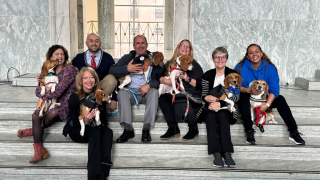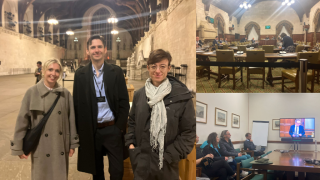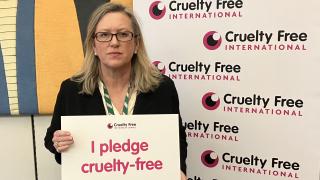Commenting on the EU Medicines Agencies Network Strategy for 2020, Cruelty Free International called for more action to end the use of animals in medicines testing
The European Medicines Agency, as well as national authorities across Europe, is responsible for authorising new human and veterinary medicines, usually on the back of animal tests.
19% of the animals used in Europe are for tests to decide whether new medicines work and are effective. However, approximately 95% of drugs fail in human clinical trials because animal tests have not detected these effects sufficiently.
The Agency has released its draft strategy for work up to 2020 and we were shocked to see the issue of animal testing did not feature. This is despite a commitment from them to look at animal testing in their internal working group (the JEG3rs). The European Commission has also stated recently that it agreed that “animal testing should be phased out”.
The EU has a history of being more supportive than other regions of international efforts to reduce animal testing. Yet the numbers of animals used in Europe is not decreasing.
In 2010 the European Medicines Agency set up the JEG3Rs working group in response to our call to look at wasteful animal testing within the sector and to ensure that alternatives were being implemented. However, so much more could be done by the relevant agencies to end animal testing.
We are calling on the European Medicines Agency to:
- Strengthen the JEG3Rs animal testing working group and increase their output and communication with national regulators
- Review the use of animals in applications for new medicines and root out duplicative and unreliable animal tests for the future
- Promote the use of alternatives to animal tests and investigate ways to encourage companies to submit data using alternatives to increase greater confidence in them
- Improve communication with stakeholders including animal protection organisations and open a more productive dialogue












